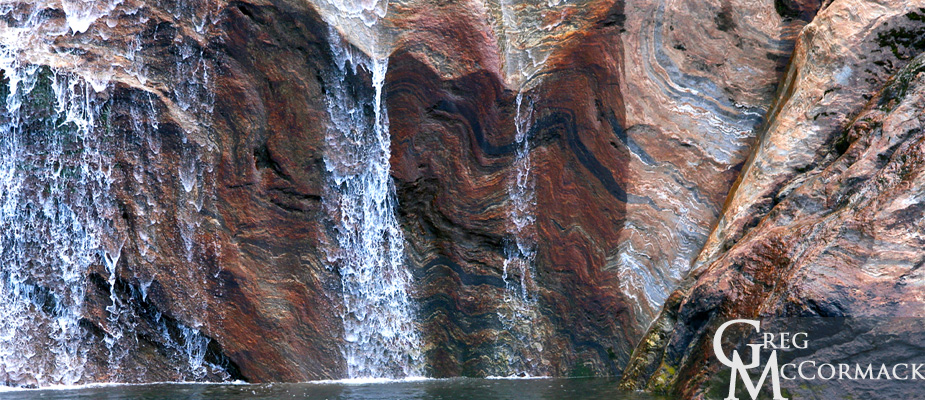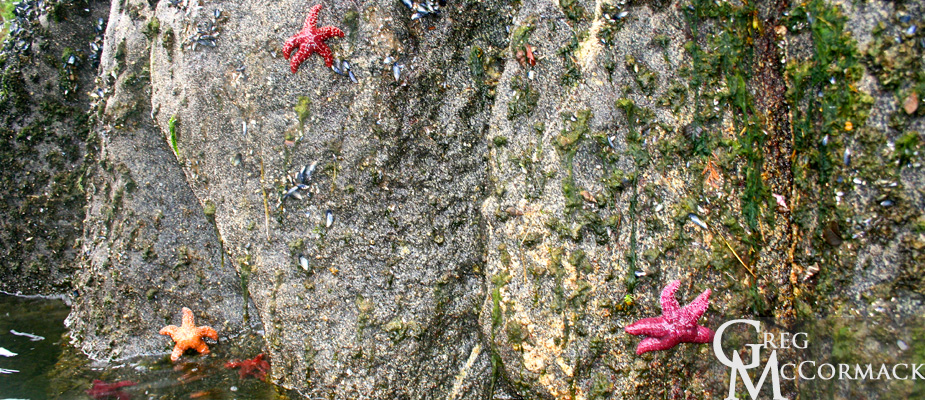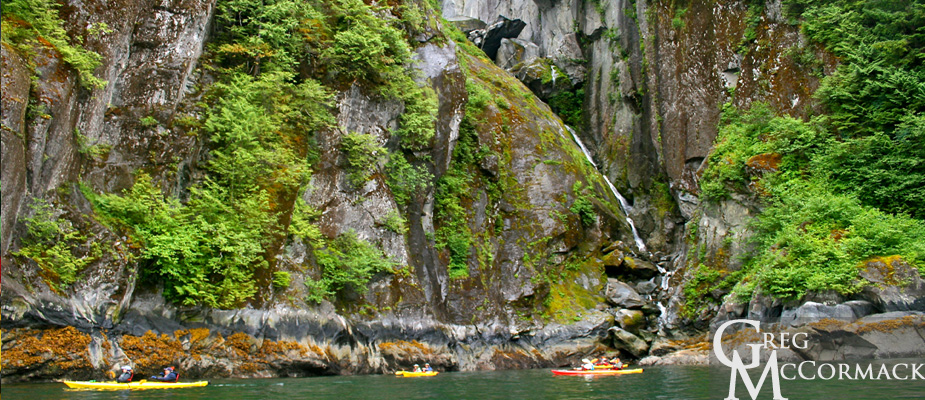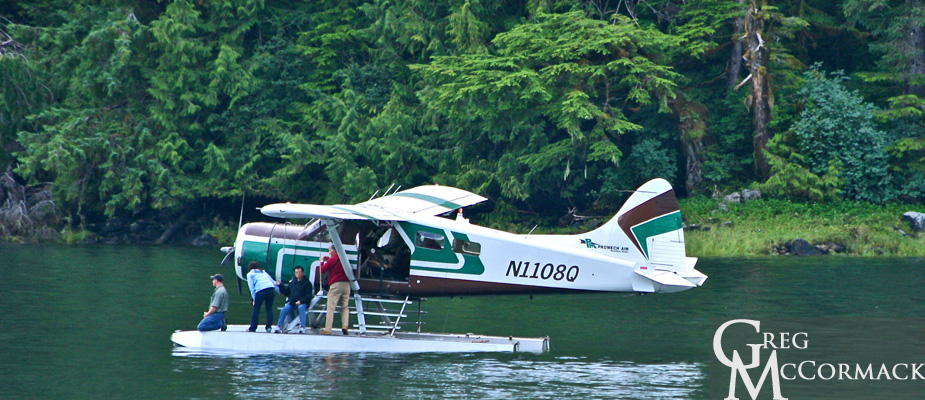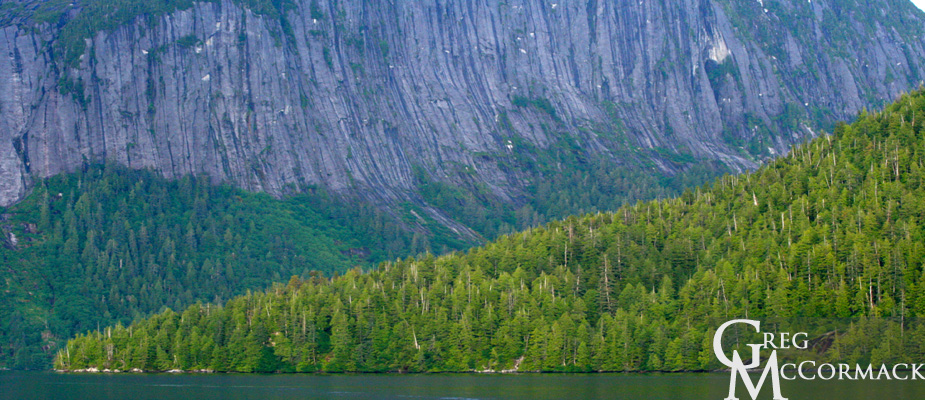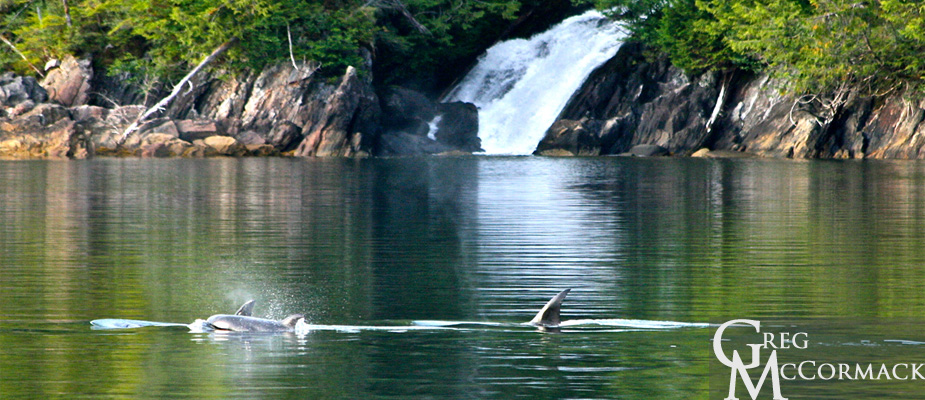Search results
Friday | July 22
October 3, 2011 by admin
Filed under InnerSea Discoveries
Misty Fiords National Monument
“Between the woods the afternoon / Is fallen in a golden swoon /
The sun looks down from quiet skies / To where a quiet water lies, /
And silent trees stoop down to trees, /
And there I saw a white swan make / Another white swan in the lake; /
And, breast to breast, both motionless, / They waited for the wind’s caress…/
And all the water was at ease.”
-A.A. Milne, The Mirror
Just after a hearty breakfast, we motor into the entrance of Walker Cove, drop the kayaks, and offer a 5-mile paddle into the upper reaches of the fiord.
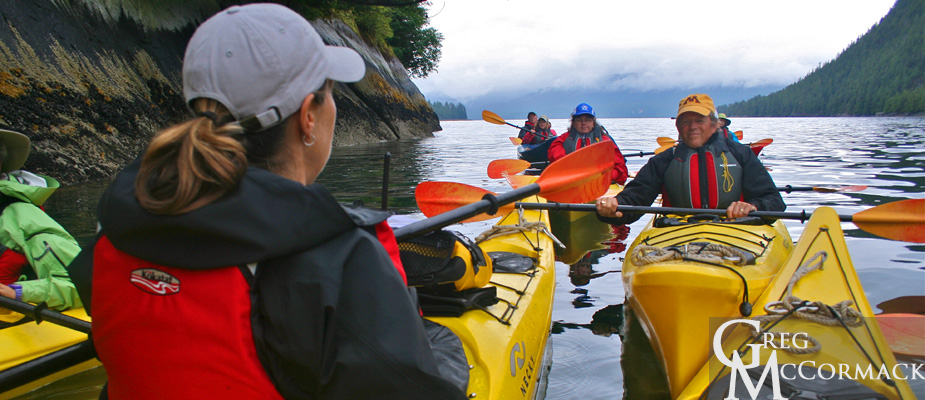
The four of us guides split up and lead groups of several two-person kayakers along the granitic walls on either side of the fiord.
The route is very scenic and offers so much to experience with all of the senses.
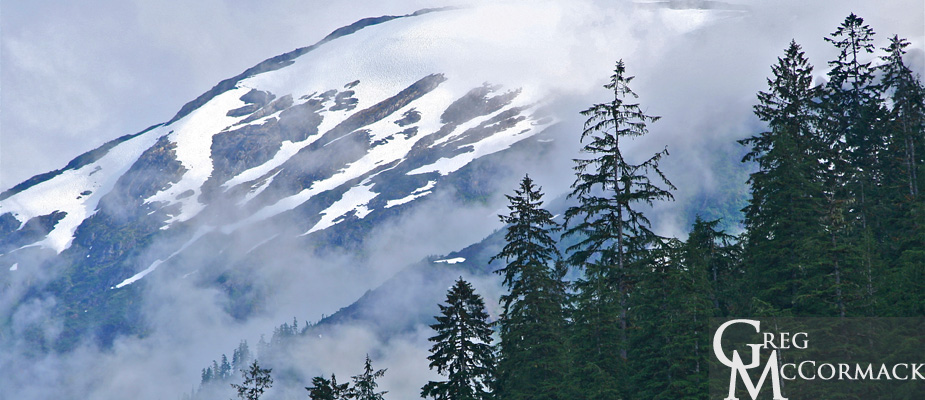
Highlights include waterfalls, eagles, seals and colorful sea stars exposed by a very low tide. Most of the sea stars are using thousands of tube-feet to pry-open mussels that are in abundance at the low to mid-tide level. Some of these colorful starfish are dangling by just an arm or two from the undersides of the ebbing tide.
The local geology is a bit complicated due to the number of different terrains that “docked” as accretionary wedges here in Southeast Alaska. I point out two different rocks that look alike by saying: “This is a gneiss rock, do not take it for granite.” The former is metamorphic, undergoing change due to heat and pressure, while the latter is an intrusive igneous rock.
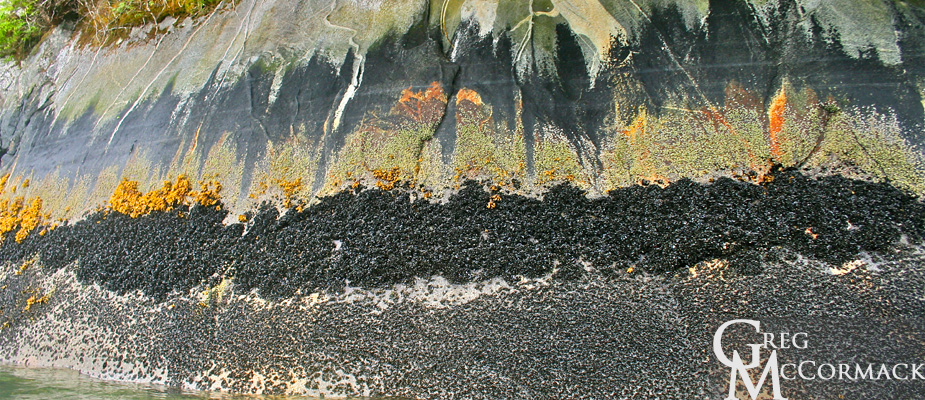
Dikes and sills are seen in the bedding of the rock and are an interesting juxtaposition adjacent to the intertidal zonation of various, colored seaweeds and invertebrates.
At the end of the paddle, we are rewarded with a view of a brown bear feeding along a small river mouth. We get quite close as the bear has little fear of anything that approaches from the water.
The bear is busy digging clams in the tidal flats surrounding the river. Gulls and crows surround the bear for any missed invertebrates that get tossed aside by the bear.
After lunch, we enter Rudyard Bay for some afternoon sightseeing.
We are not the only ones, as we see several floatplanes coming and going. This bay is a very popular area to visit. The flight-seeing is offered by shore excursion managers on the cruise ships that dock in Ketchikan.
While watching a bear, we are surprised by a floatplane that circles our ship then comes in for a landing. The pilot lands with precision in such a manner that even with the engines turned-off, the plane floats right up to the optimal viewing distance. Passengers disembark the planes cabin and walk out onto the pontoons for an unobstructed view. After watching the wildlife for about 20-minutes, the pilot takes off and flies over our ship on its way back to Ketchikan.
Bush pilots like to say that anyone who doesn’t fly is “geographically challenged”. Getting up and over the tree-studded mountains to see the intricate waterways, forests and glaciers is a real lesson in geography.
In the later afternoon and on into the evening we are graced by the presence of several killer whales plying the coniferous-green waters. We cannot quite determine if they are a fish-eating local pod or a mammal-eating transient pod. Nonetheless, they seem to be following us out of Rudyard Bay and back into the Behm Canal.
“Find your place on the planet, dig in, and take responsibility from there.” –Gary Snyder


